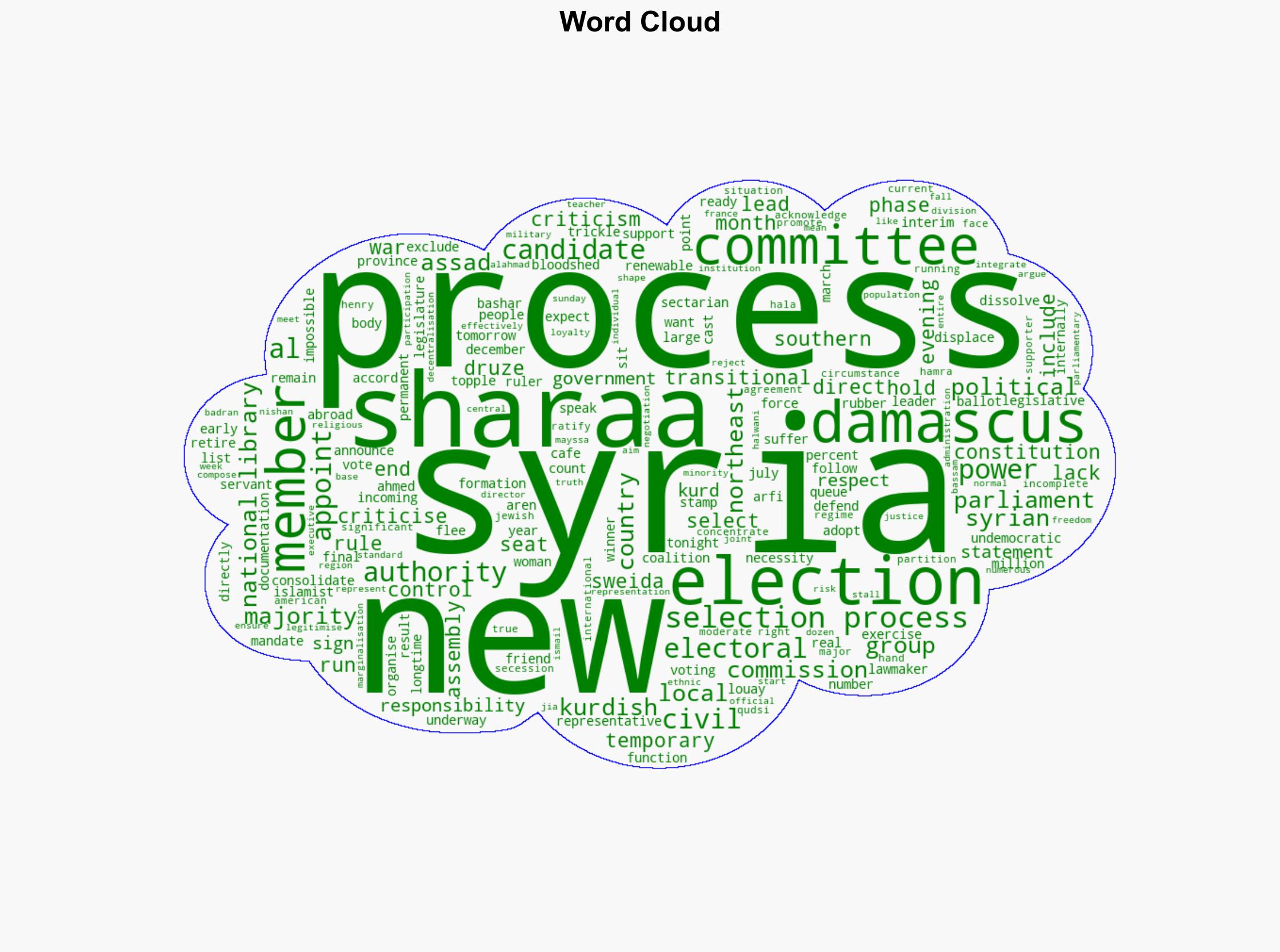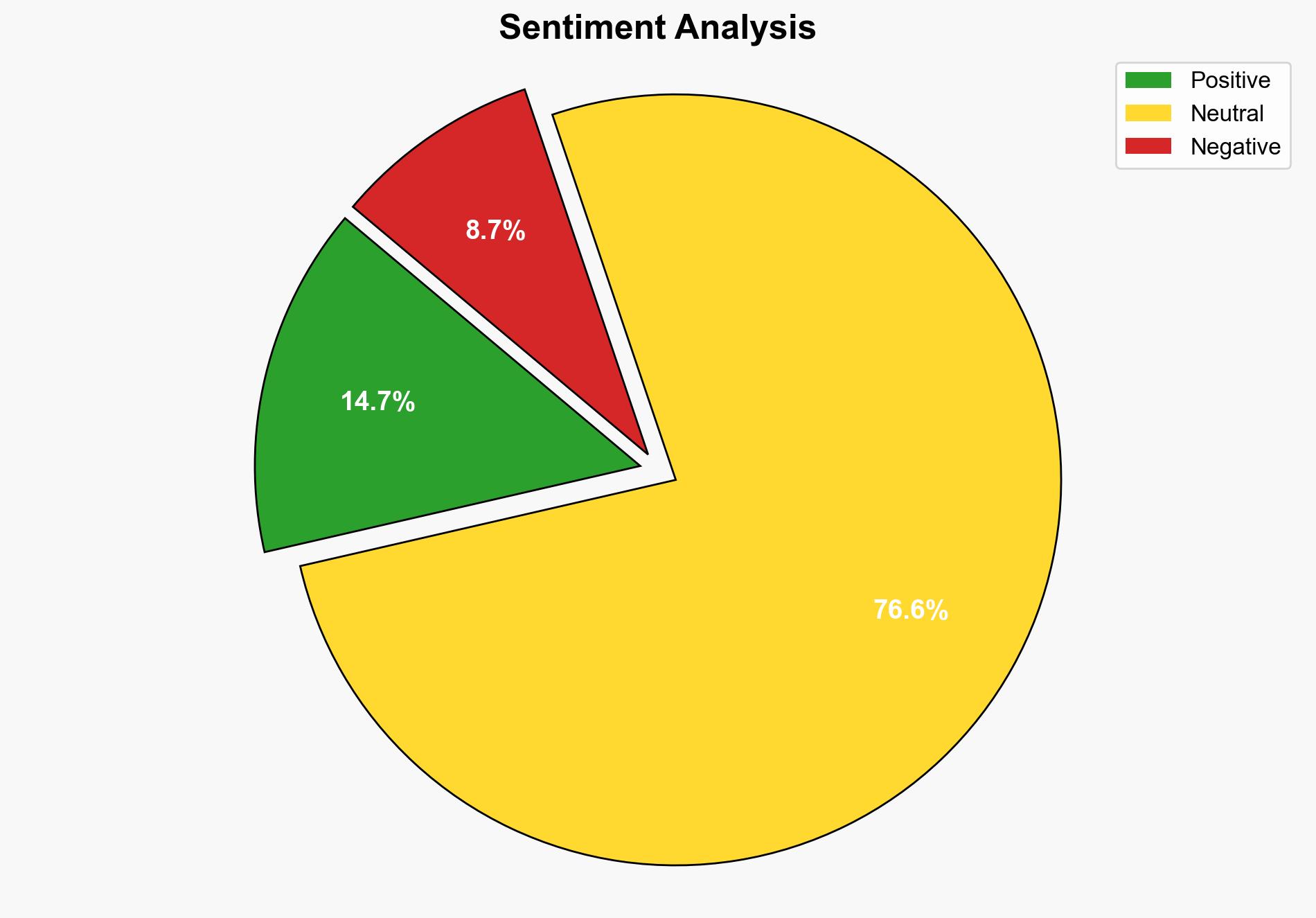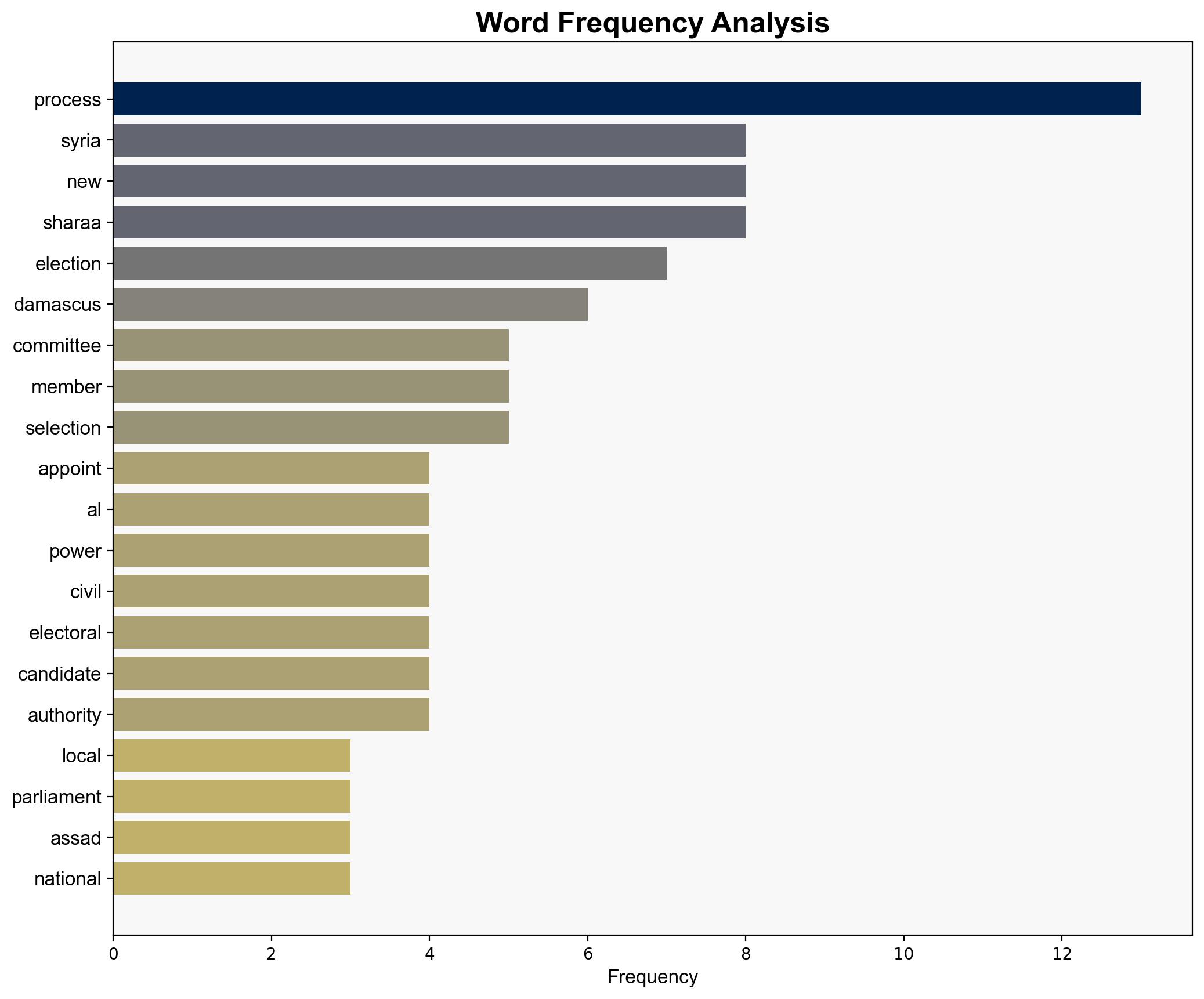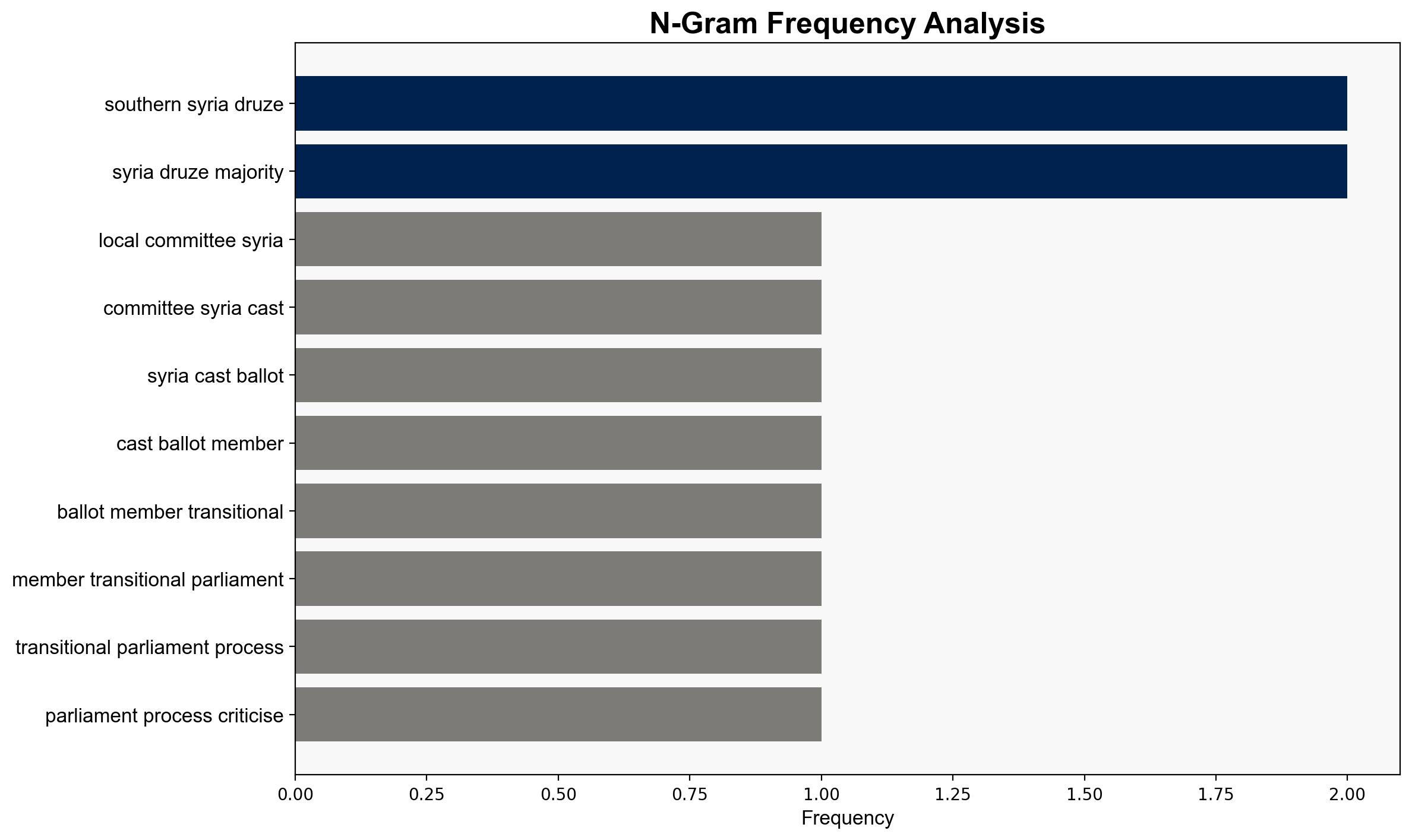Syria to select members of first post-Assad parliament – RTE
Published on: 2025-10-05
Intelligence Report: Syria to select members of first post-Assad parliament – RTE
1. BLUF (Bottom Line Up Front)
The transitional parliamentary selection process in Syria is likely to consolidate power under Ahmed al-Sharaa, potentially marginalizing ethnic and religious minorities and risking further fragmentation. Confidence Level: Moderate. Recommended action: Monitor developments closely, engage with regional stakeholders to advocate for inclusive governance, and prepare for potential instability.
2. Competing Hypotheses
Hypothesis 1: The transitional parliament is a genuine step towards democratization and stabilization in Syria, aiming to create a representative government post-Assad.
Hypothesis 2: The process is primarily a power consolidation tactic by Ahmed al-Sharaa, designed to ensure loyalty and control, while sidelining opposition and minority groups.
Using ACH 2.0, Hypothesis 2 is better supported due to the direct appointment of representatives by Sharaa, exclusion of Kurdish regions, and criticism from rights groups about lack of representation and concentration of power.
3. Key Assumptions and Red Flags
– Assumption: The transitional process is intended to lead to a stable and inclusive government.
– Red Flag: The exclusion of Kurdish regions and the appointment of representatives by Sharaa suggest a lack of genuine democratic intent.
– Potential Bias: Confirmation bias may lead observers to overestimate the democratic nature of the process based on its framing as a “parliamentary selection.”
– Missing Data: Detailed information on the selection criteria and the extent of international oversight is lacking.
4. Implications and Strategic Risks
– The consolidation of power under Sharaa could lead to increased sectarian tensions, particularly in regions like Sweida.
– Exclusion of Kurdish and other minority groups may exacerbate calls for autonomy, risking territorial fragmentation.
– Potential for increased regional instability if the process is perceived as illegitimate, leading to renewed conflict.
– Economic impacts could arise from continued instability, affecting regional trade and investment.
5. Recommendations and Outlook
- Engage diplomatically with Syrian stakeholders to promote inclusive governance and minority representation.
- Prepare contingency plans for potential escalation of conflict, including humanitarian aid and refugee support.
- Best Case: Successful integration of diverse groups leads to a stable transitional government.
- Worst Case: Power consolidation leads to civil unrest and regional destabilization.
- Most Likely: Continued political maneuvering with limited progress towards genuine democratization.
6. Key Individuals and Entities
– Ahmed al-Sharaa
– Henry Hamra
– Hala al Qudsi
– Bassam Alahmad
– Mayssa Halwani
– Louay al Arfi
– Burhan Azzam
– Badran Jia
7. Thematic Tags
national security threats, regional focus, governance, sectarian tensions, political stability




